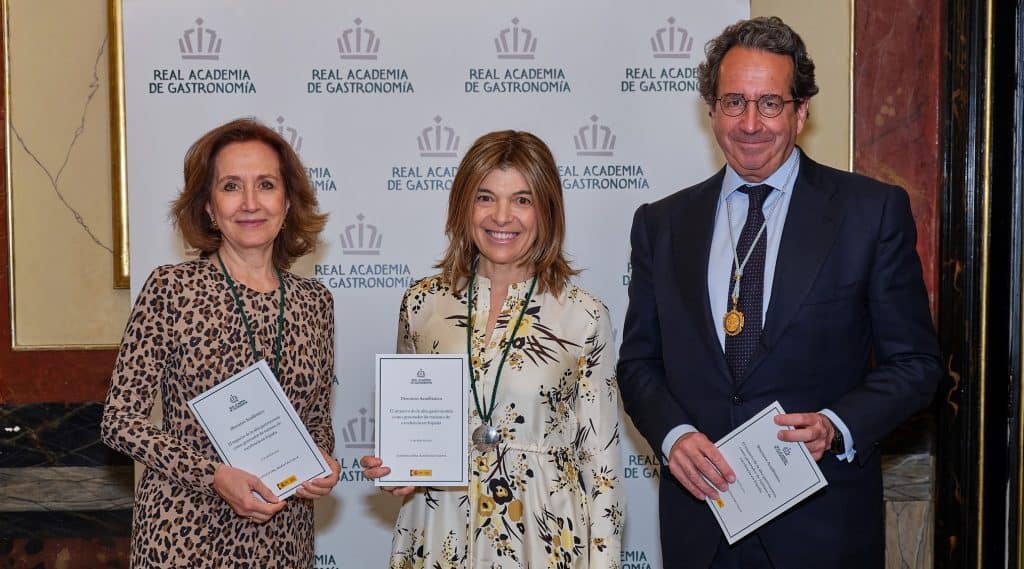The Duchess de Plasencia, Doña María de Gracia de Solís-Beaumont y Téllez-Girón, passed away on February 20, 2021, at the age of sixty-three in Madrid. Her life was marked by her dedication to serving others, as a nurse with the Spanish Red Cross and as a member of the Sovereign Military Order of Malta and the Constantinian Order of Saint George.
As a second cousin once removed of Doña Victoria Eugenia Fernández de Córdoba, Duchess de Medinaceli, María de Gracia was deeply rooted in Spanish nobility. Born on March 12, 1957, she was the younger daughter of Don Pedro de Solís-Beaumont y Lasso de Vega and Doña Angela María Téllez-Girón. Her marriage to Don Carlo Ruspoli, Duca di Morignano, in 1975 produced a daughter, Doña María de Gracia Ruspoli y Solís-Beaumont, who went on to have two children of her own. The Duchess de Plasencia’s legacy will be remembered for her selfless service and her connection to the Spanish nobility.
what were the key contributions of the Duchess de Plasencia to the Spanish Red Cross

what specific roles did the Duchess de Plasencia hold within the Spanish Red Cross

what inspired the Duchess de Plasencia to become a nurse with the Spanish Red Cross
 |
| La Duquesa de Plasencia. |
 |
| Don Carlo Ruspoli, Duca di Morignano, and Doña María da Gracia de Solís-Beaumount y Téllez-Girón, Duquesa de Plasencia. |
On 20 February 2021, Doña María de Gracia, Duchess de Plasencia died at Madrid. She was sixty-three years-old. The duchess had been a nurse with the Spanish Red Cross and was a Dame of the Sovereign Military Order of Malta as well as of the Constantinian Order of Saint George. María de Gracia was a second cousin once removed of Doña Victoria Eugenia Fernández de Córdoba, Duchess de Medinaceli (1917-2013).
 |
| The wedding of the Duchess de Osuna and Don Pedro de Solís-Beaumont, 1946. |
 |
| Doña Angela, Duchess de Osuna, with her daughters Doña María de Gracia, Duchess de Plasencia, and Doña Angela, Duchess de Arcos. |
Doña María de Gracia de Solís-Beaumont y Téllez-Girón was born at Madrid on 12 March 1957. She was the younger daughter of Don Pedro de Solís-Beaumont y Lasso de Vega (1916-1959) and Doña Angela María Téllez-Girón y Duque de Estrada, Duchess de Osuna, etc. (1925-2015), who married in 1946. María de Gracia had one older sister: Doña Angela de Solis-Beaumont y Téllez-Girón, Duchess de Arcos (b.1950). In 1963, María de Gracia’s mother remarried Don José Maria de Latorre y Montalvo (1925-1991). From this marriage, María de Gracia had two half-sisters: Doña María del Pilar de Latorre y Téllez-Girón, Duchess de Uceda (b.1965), and Doña María de la Asunción de Latorre y Téllez-Girón Montalvo, Duchess de Medina de Rioseco (b.1968).
 |
| The Duchess de Plasencia with her mother the Duchess de Osuna. Photograph (c) Don Carlo Ruspoli. |
On 11 October 1975, Doña María de Gracia de Solís-Beaumont y Téllez-Girón married Don Carlo Ruspoli, Duca di Morignano (b.1949). The Duke di Morignano and the Duchess de Plasencia had one child: Doña María de Gracia Ruspoli y Solís-Beaumont (b.Madrid 16 June 1977), Marquesa del Villar de Grajanejos. On 28 November 2009, the Marchioness del Villar de Grajanejos married Don Javier Isidro González de Gregorio y Molina (b.Madrid 7 November 1971). Doña María de Gracia and Don Javier have two children: Doña María de Gracia González de Gregorio y Ruspoli (b.2015) and Doña Blanca Micaela González de Gregorio y Ruspoli (b.2018).
 |
| The Duchess de Plasencia and the Duke di Morignano. |
what were the Duchess de Plasencia’s most impactful humanitarian projects
As we conclude our reflection on the life and legacy of the Duchess de Plasencia, we are reminded that her dedication to serving others was a hallmark of her life. Her commitment to the Spanish Red Cross and her roles within the Sovereign Military Order of Malta and the Constantinian Order of Saint George demonstrate her unwavering commitment to the well-being of others. The Duchess de Plasencia’s life was marked by her connection to the Spanish nobility, being a second cousin once removed of Doña Victoria Eugenia Fernández de Córdoba, Duchess de Medinaceli. Her marriage to Don Carlo Ruspoli, Duca di Morignano, produced a daughter, Doña María de Gracia Ruspoli y Solís-Beaumont, who went on to have two children of her own. The Duchess de Plasencia’s legacy will be remembered for her selfless service and her connection to the Spanish nobility.
As we bid farewell to the Duchess de Plasencia, we are reminded that her life was a testament to the power of compassion and dedication. Her contributions to the Spanish Red Cross and her roles within the Sovereign Military Order of Malta and the Constantinian Order of Saint George will continue to inspire others to follow in her footsteps. The Duchess de Plasencia’s life was marked by her connection to the Spanish nobility, being a second cousin once removed of Doña Victoria Eugenia Fernández de Córdoba, Duchess de Medinaceli. Her marriage to Don Carlo Ruspoli, Duca di Morignano, produced a daughter, Doña María de Gracia Ruspoli y Solís-Beaumont, who went on to have two children of her own. The Duchess de Plasencia’s legacy will be remembered for her selfless service and her connection to the Spanish nobility. May her life serve as a reminder to us all of the importance of compassion and dedication to serving others.



